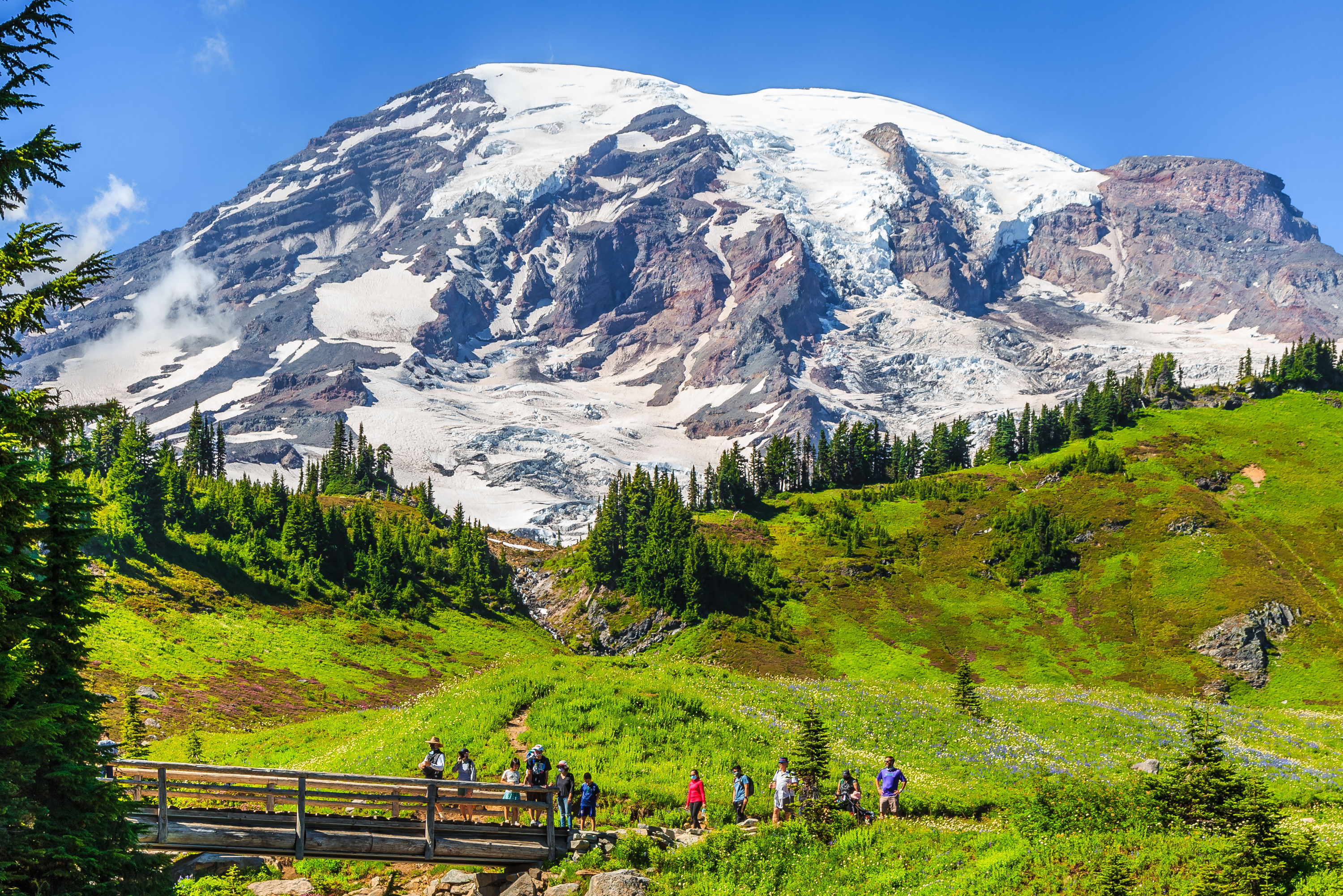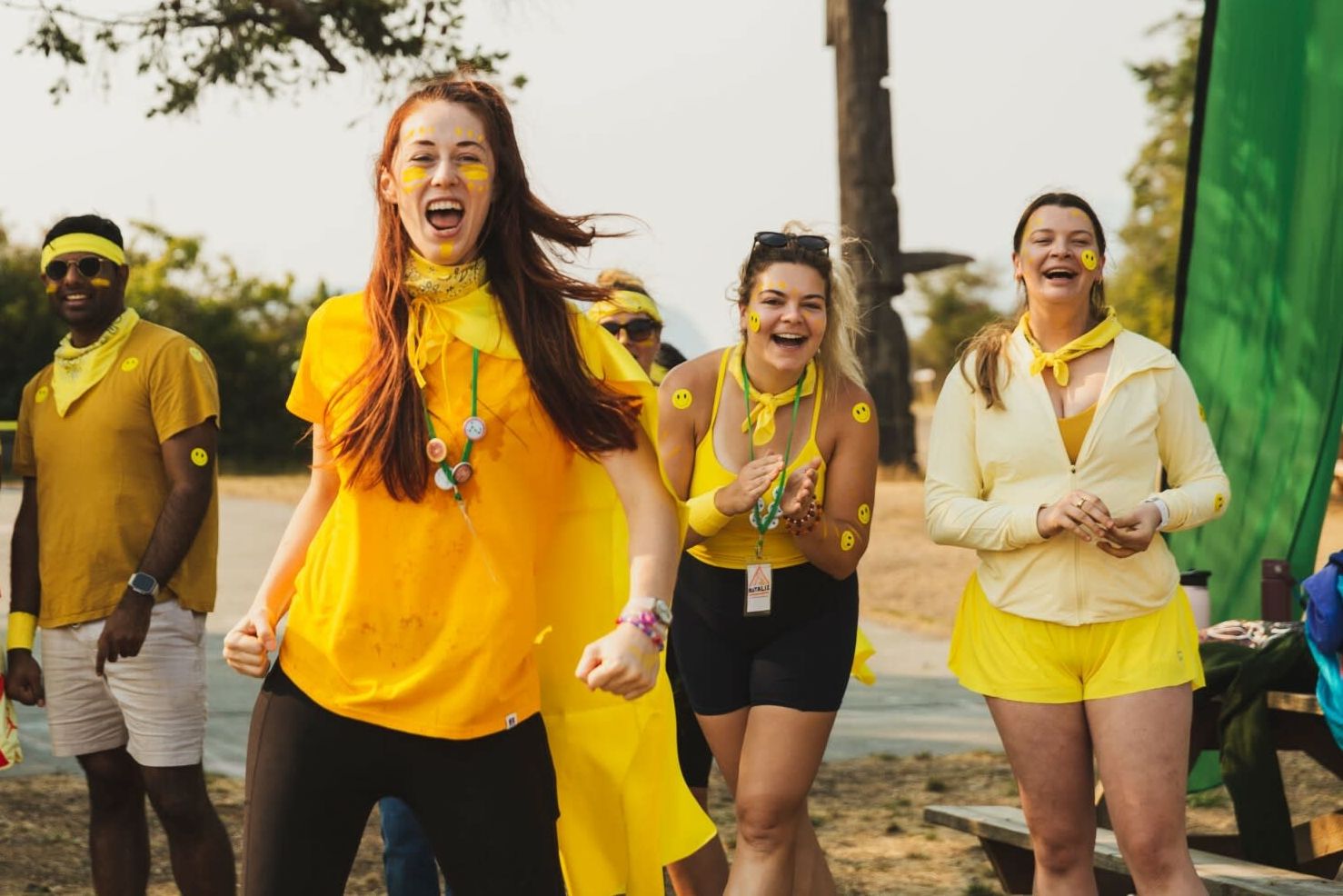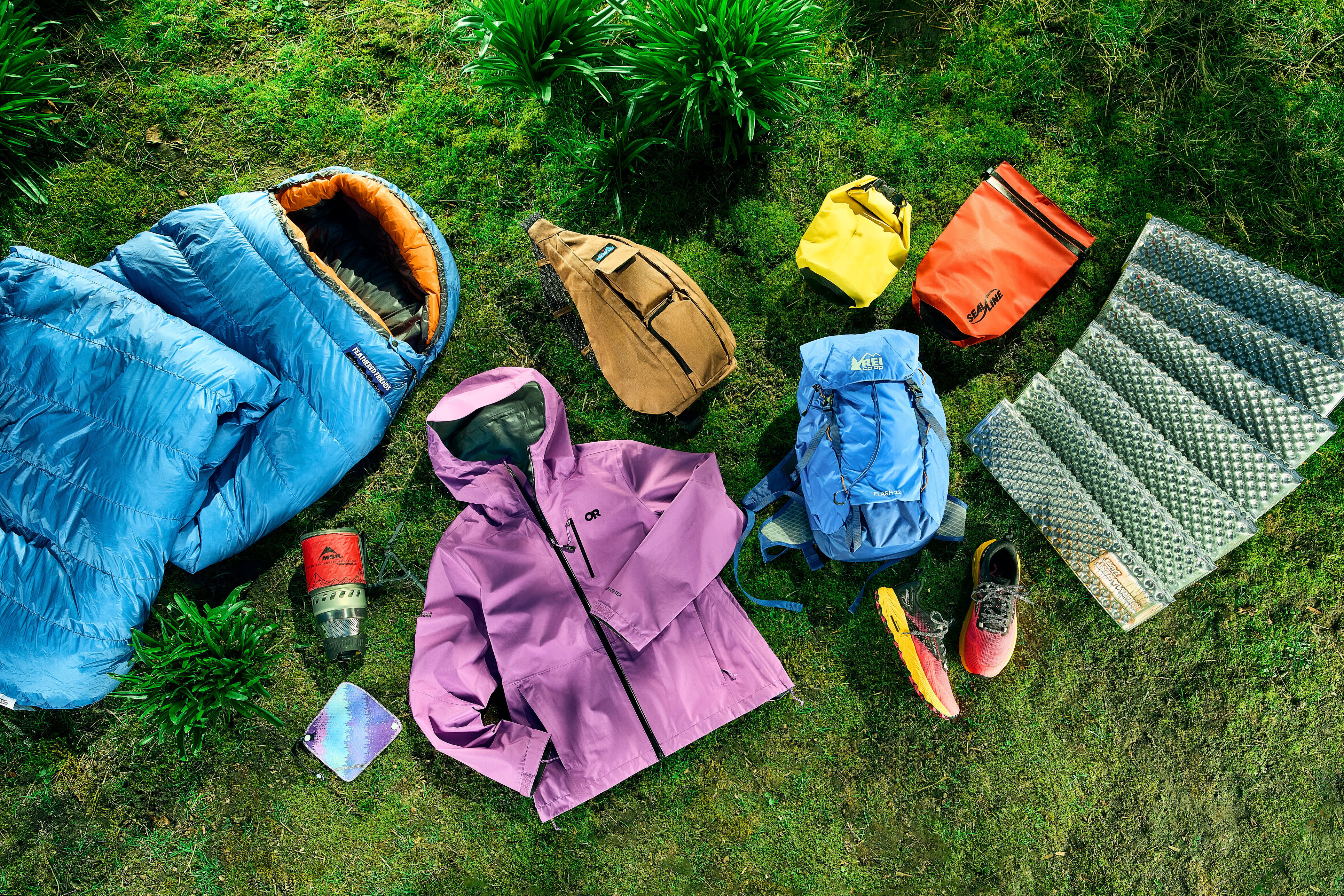New Reservation Systems Have Complicated Camping

It was a few seconds after 6:59am. Alina Morse sat before her computer in her Spokane home, already refreshing the website reservation page for Fort Flagler Historical State Park. Across the state—as far as Arizona, actually—her friends and family in 14 other households did the same thing, all hoping to score campsite reservations for the group’s annual July family camp. The result: a big fat zero.
“We were absolutely skunked,” she says, still disappointed weeks later. Not one of the 15 scored a site at the beachfront campground near Port Townsend, even though their preferred weekend had only opened to reservations at 7am.
A family tradition older than Morse herself, the camping trips have become more difficult in the age of computerized reservations. The entire group tried again the next day, figuring they could cut the trip shorter, but again all the campsites filled up before anyone could pay and book.
“It genuinely felt like we were being taken by bots,” Morse says. “There’s no way anything could be faster than we were.” Dejected, she combed the internet until she found a collection of campsites at Dosewallips State Park about 40 miles south. She’s saddened that they can’t return to a site she calls “near and dear to all our hearts,” especially in a year they will include a memorial service for a family member.
Online reservations for various campgrounds have been around for decades, but in recent years they’ve felt more akin to wrestling with Ticketmaster than planning a s’mores session. On Recreation.gov, a site used by national parks and forests across the country, savvy users have learned how to book sites even before the rolling availability window opens—book two weeks ahead into the otherwise unavailable timespan, then cancel excess days once they’ve nabbed prime weekends. “I understand the convenience of the internet, but it’s not working for real people,” says Morse.
As is the way of the internet, for every problem it causes, a new solution arises. In Facebook groups dedicated to campsite relistings, people who can’t use a reservation post it publicly, selling it at cost to the first commenter who snags it. Groups for Washington and wider Pacific Northwest campgrounds boast 9,000 and 41,000 users, respectively—and the latter has only been around for about a year. Spots up for grabs rarely last more than a few minutes before being snapped up in a flurry of “Interested!” comments.
Lauren Minckley, the moderator of one such group, says the high cancellation fees at some campgrounds prompted the group’s formation—by selling to a stranger, the original booker recoups all that they spent. No resale inflation allowed; by limiting money exchanges to what the original buyer spent, she says, they stop bad-faith users from reserving stuff just to profit on it, as if a picnic table in Olympic National Park was a floor seat for a Taylor Swift concert.
Not everyone’s a fan. Stefanie Knowlton of Oregon State Parks says they highly discourage those kinds of groups. For one thing, the original purchaser retains liability; in the event the stranger who uses the reservation damages the site, their credit card will still be on file. Plus, says Knowlton, fraud isn’t uncommon, with people cancelling a reservation after hawking it, or selling the reservation to multiple people who all show up to claim it.
“We’re talking about it from an equity standpoint,” says Knowlton of the immense popularity that has limited campers from accessing the state’s more than 350 parks. “We want to level the playing field, and we need to find a creative solution.” And why not just return to first-come, first-served status? The surety of knowing a site is reserved actually increases usage, she says.
In Southern Oregon, Marie Brennan follows the groups but without plans to buy anything. As a onetime campground host, she saw how often fights arise around campsites, around reserved spots left empty, about anything at all. “People are getting absolutely crazy,” she says. “People are getting extremely hostile about camping.”
Meanwhile, technology sprouts new workarounds. In Vancouver, BC, friends Eric Shelkie and Eric Karjaluoto created Campnab, an automated system that works for the individual good. Users pay upwards of $10 to be alerted when a cancellation hits their campground and dates of choice; they then book it directly through Recreation.gov or the campground website.
“To be honest, I think the way people characterize bots is actually an urban legend,” says Karjaluoto—theoretically possible, but not happening on a big scale. No one can point to the for-profit secondary market that is rumored to exist. “It’s actually a human issue,” he says. Demand just vastly outstrips supply.
In Washington, one region has tightened controls to totally discourage trading. Backpacking permits to the Enchantments, a beautiful stretch of the Cascades near Leavenworth, are such a hot ticket that in 2022 more than 36,800 people applied for the chance to sleep overnight there—with just 2,528 permits awarded in a lottery. Less than a seven percent success rate.
Wilderness ranger Kyle Warden notes that the Enchantments’ one-application-per-person system and no-transfers rule make it more fair—and there’s no secondhand market. What’s more, the rangers hold back a certain number each night, releasing them to the public week-of, always at a random time. “It makes it more of an opportunity for everyone, not just the person sitting at their computer at a certain time,” he says. They hope to return to a daily walk-up drawing—Covid and staffing shortages halted it in 2020—for what Warden calls “a more spontaneous and unconfined recreation possibility.” And, more specifically, no place for bots. Perhaps the solution for Ticketmaster’s Taylor Swift woes lies in an unexpected place: with the guys wearing Smokey Bear hats.




